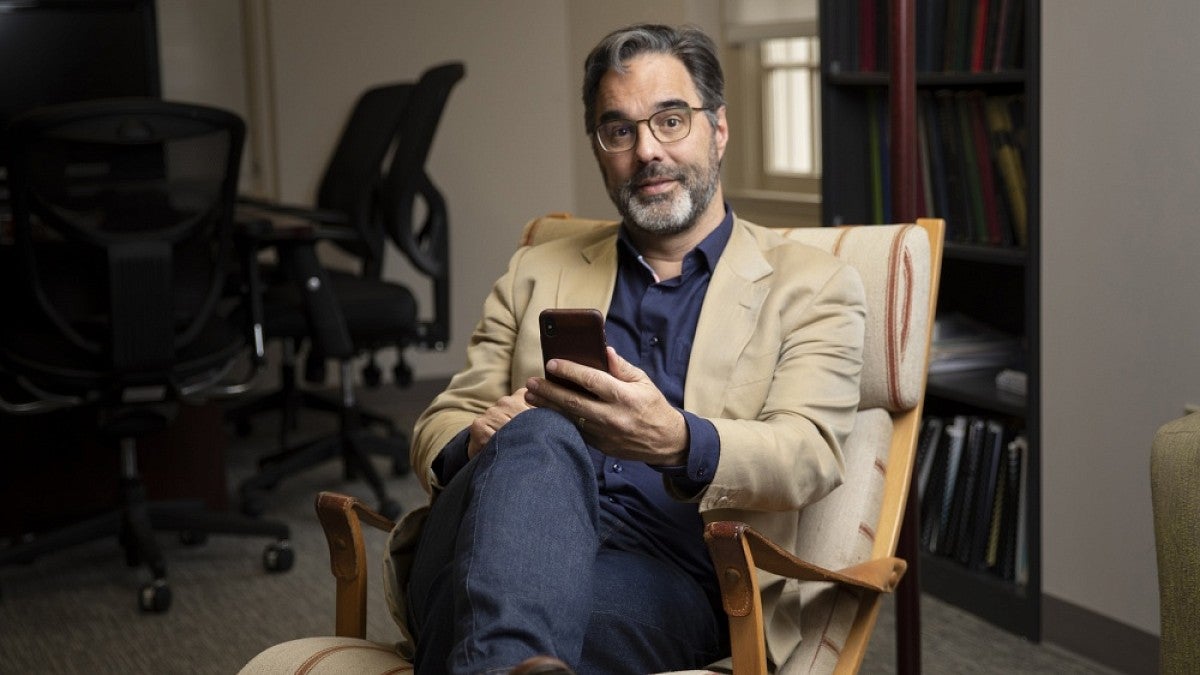Across the UO campus, researchers from myriad disciplines make discoveries that lead to inventions, patents and spinoff businesses. Recent examples include Ksana Health, a new company cofounded by UO psychology professor Nick Allen that’s creating digital platforms to turn smartphones into wireless wellness tools.
Another research venture led by research associate Avinash Singh Bala and biology professor Terry Takahashi is exploring how pupils respond to sound, with hopes of creating an infant hearing test, a critical unmet need in pediatric audiology.
Darren Johnson, the Bradshaw and Holzapfel Research Professor in Transformational Science and Mathematics, and Mike Pluth, associate professor of chemistry and biochemistry, launched an initiative to find innovative ways to measure hydrogen sulfide, useful for biomedical research, oil and gas industries, agriculture and environmental remediation. Post-doctoral researcher and UO alumnus Tobias Sherbow will help spin out the new technology.
These three diverse examples all have one thing in common. They received support from the University Venture Development Fund. The fund helps turn today’s research and development into tomorrow’s businesses, ensuring that new and nascent technologies will have a better chance to become commercially viable.
The UO’s vice president for research and innovation, David Conover, hopes that tax credits will encourage donors to make their gifts before 2019 comes to a close.
“This is a win-win,” Conover said. “UVDF funding helps the UO transform ideas into industrial innovation, new businesses and jobs for Oregon. We’re excited to offer additional incentives to donors who support research, innovation and commercialization activities at the University of Oregon.”
For Oregonians who make philanthropic gifts to the University of Oregon, or are considering doing so, their generous contributions could also give them something back — as much as 60 percent back. Donors to the University Venture Development Fund can receive as much as 60 percent of their contributions in state tax credits, up to $600,000.
By contributing to the fund, donors are investing in today’s aspiring Oregon entrepreneurs and tomorrow’s innovative industries. Thanks to state tax credits, they also get something back. A state tax credit reduces the amount of tax owed, unlike a tax deduction, which merely reduces taxable income.
Donors to the fund provide capital for university entrepreneurial programs and create opportunities for students to gain experience applying research to commercial activities. The fund also provides proof-of-concept funding that helps take research and development projects to the next level: creating commercially viable products and services.
To learn more about the University Venture Development Fund or discuss gift opportunities, contact Chelsea Paris, associate director of development at 541-346-1760 or ckari@uoregon.edu.


